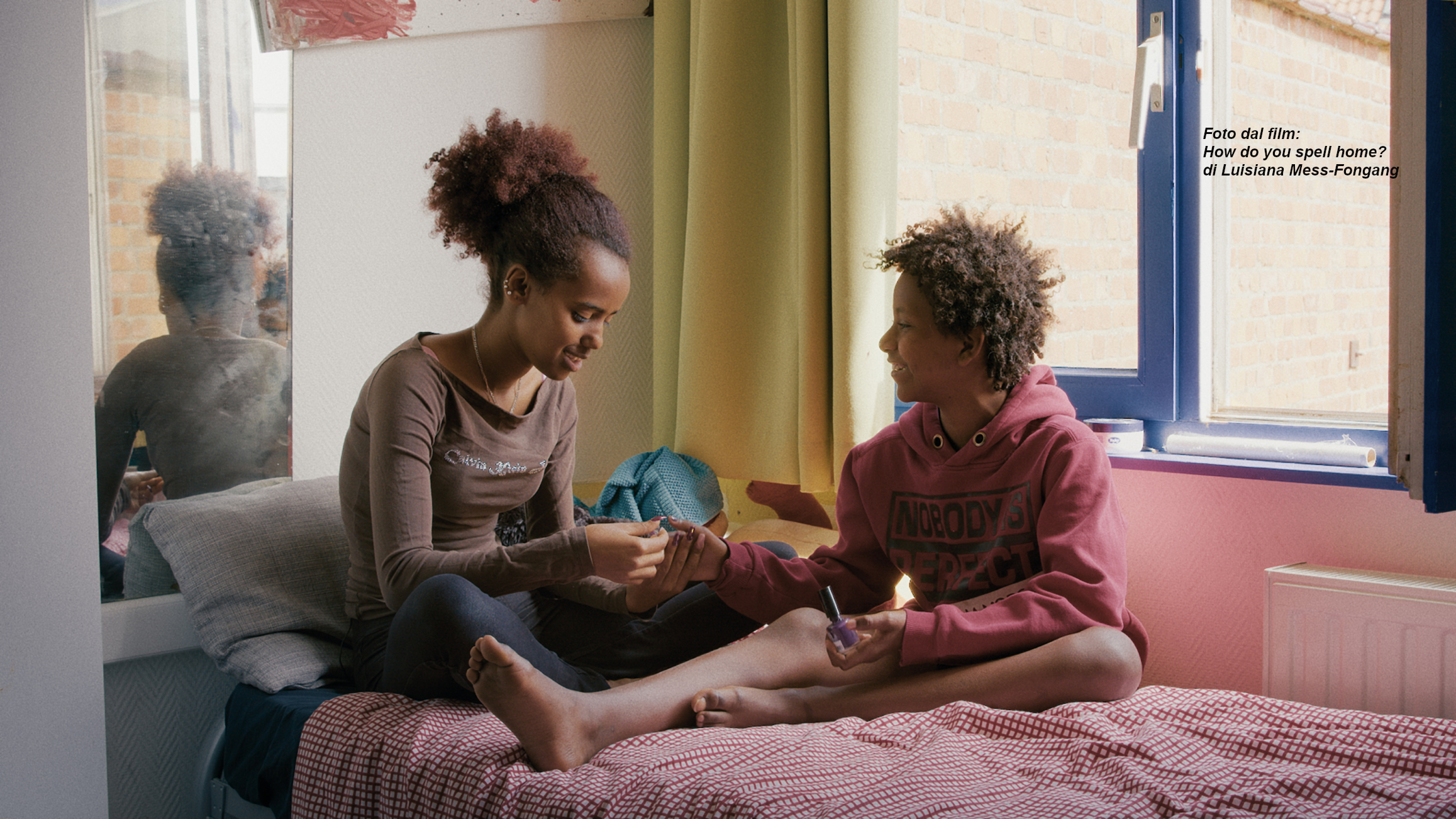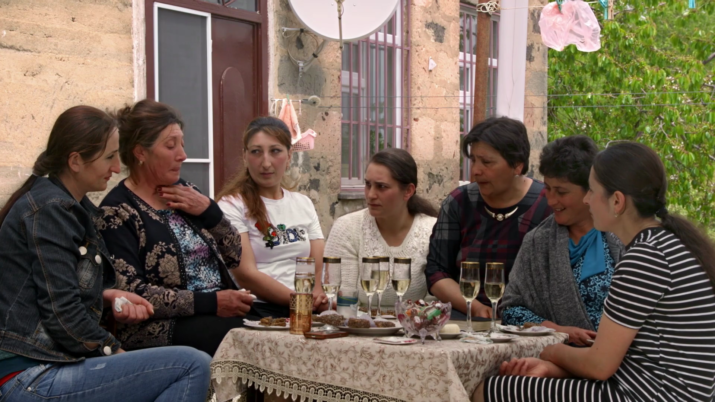directed by Tamara Stepanyan, Armenia/Francia 2019, 92’
A village where women, children and elderly reside. Men leave 9 months of the year to Russia to work. Summer, a slow and friendly atmosphere; women do the hay, cut the grass and store for the winter. Fruits will be canned to be eaten during the cold winter. The sun arouses a certain laziness, a sensual relaxation. Autumn, with it’s different shades of red, is the season of birth and potato harvest. Women and men find intimacy in the coldness of winter, hence women give birth in October and November. Fathers meet their children in December. Preparations start now to welcome men, waiting is long and tiring. Winter is near, a form of suspense sets in: whose husband will come first ? The men arrive with the snow. The women are shy they need time to exist in the presence of men. The children are happy to be close to their fathers. Spring sets in, the atmosphere becomes tensed. Men depart for the land of tsars. She is weak and sad, but needs to find strength to take care of the children.
Watch the trailer
Documentary available online from from October 20 at 9pm to October 22 at midnight
at festivalscope.com/
Available for free for up to 400 people
Live on Facebook: Thursday 22nd October – 5.30 pm
with Barbara Pinelli (Roma Tre University) and Francesca Alice Vianello (University of Padua)
“Women who stay, women who migrate. Gender perspectives on contemporary mobility.”
In the 1970s, when a reflection was opened on the relationship between human mobility and the migration of women, it was believed that this field of research only focused on a specific female and that the experiences of women were not as capable, as those of men, of showing the gears of wider social, economic and structural systems. In the following years – thanks to the feminist approaches to migration research – it was understood how much gender is a structuring principle for migrations (and structured by them), and that the intersection of gender and migration is a privileged analytic space which sheds light on social processes and nets, structural dynamics, systems of poverty and exclusion.
The talk by Barbara Pinelli connects the documentary Village of Women – which tells the male exodus from a small country in Armenia to Russia from the point of view of the women who remain and the ways in which they reorganize family networks and the entire community life – with a research conducted on the Euro-Mediterranean border and focused on the forced migration of women. By linking these two works, the aim is to show the central role of women’s studies, which explore the systems of contemporary mobility in different ways in order to discuss the social structures of inequality and oppression, resistance and struggles, suffering and the reorganisation of life in marginal conditions.
The talk by Francesca Alice Vianello addresses the issue of the consequences of both male and female migration on their home communities. Starting from her research experiences in some Eastern European countries, the researcher will examine, from a gender perspective, the social construction of absence and presence, the relationships between those who leave and those who stay, as well as the ways of reorganizing family and relationships across borders.




